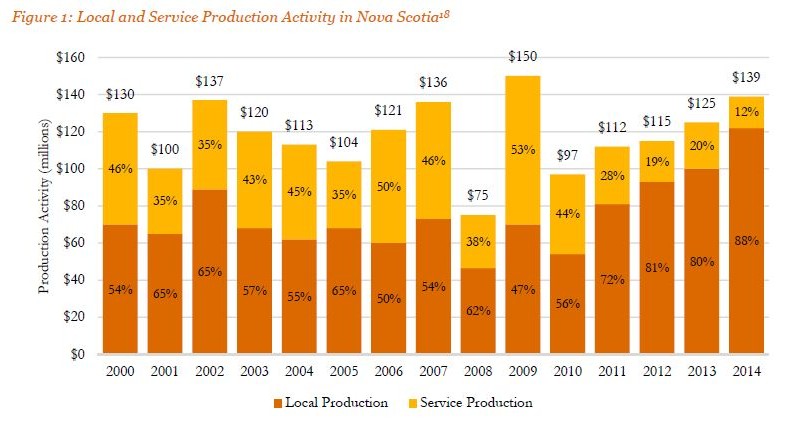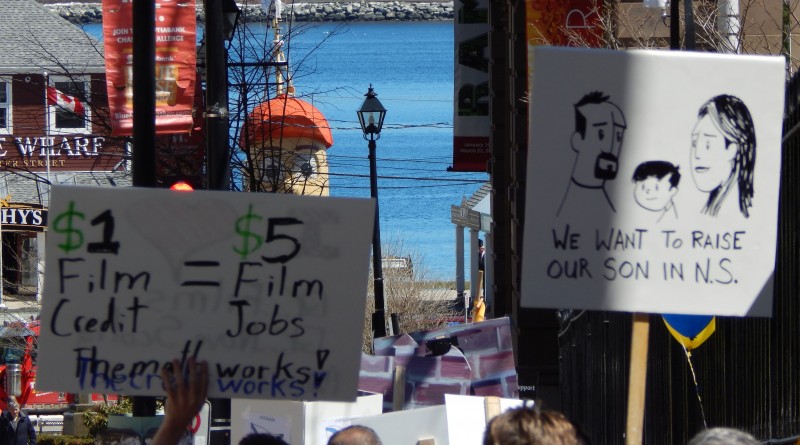I posted my article “Why The Film Industry Controversy Matters To All Nova Scotians” in the Film Nova Scotia group on Facebook, and a reader posted the following comment, which I think is worth a response because it touches on a popular misconception about both the Nova Scotia film and television industry in general, and the areas in which it has the most impact.
“I applaud the effort here,” he wrote, “but I don’t think it’s the correct argument to make (although it is accurate) – at least not to the constituents that matter. After the decision on the tax credit cut, the government popularity *INCREASED* in most rural Liberal ridings. That’s because the government paints film makers as, more or less, ‘godless, scruffy city living hipsters that only work 11 weeks a year.’ That perception, widely held in rural ridings, is never going to change – at least not in a time frame that is useful to us… Add to that the perception that people in the industry make too much money (based on zero data, but still a belief that is widely held among rural Nova Scotians) and you get no sympathy. Combined with the anti-Halifax sentiment, rural Liberal voters are always going to side with the government. The only way to move the government is to change the perception in the ridings where they are most vulnerable. TO do this, we can’t argue trust, or government failure etc. The only thing that may work is to argue directly at the self-interest of the people who vote Liberal in Liberal held ridings.”
In broad strokes, this perception seems accurate. Almost all of the Nova Scotia film and television production companies that form the core of the industry, for example, are based in Halifax, or nearby. The equipment rental companies, such as William F. White, are based here as well. The unions all have their headquarters in Halifax. Film and Creative Industries was located in downtown Halifax before the Liberals closed it down last April, as is the head regional office for Telefilm Canada, the National Film Board, the CBC, and so on.
But dig deeper and you see that this perception is fundamentally flawed, because it overlooks the key factor in determining the overall benefits of the film industry to the Nova Scotia economy – where productions are filmed, and the effects that they have in that area.
Indeed, the negative effects of the Liberal government’s actions in dismantling the 20-year old film funding structure and government film agency last April will be most strongly felt not in Halifax, but in the rest of the Province, and work directly against the goal of revitalizing and diversifying the economy of rural Nova Scotia.
In other words, we are all in this together.
Read more



















